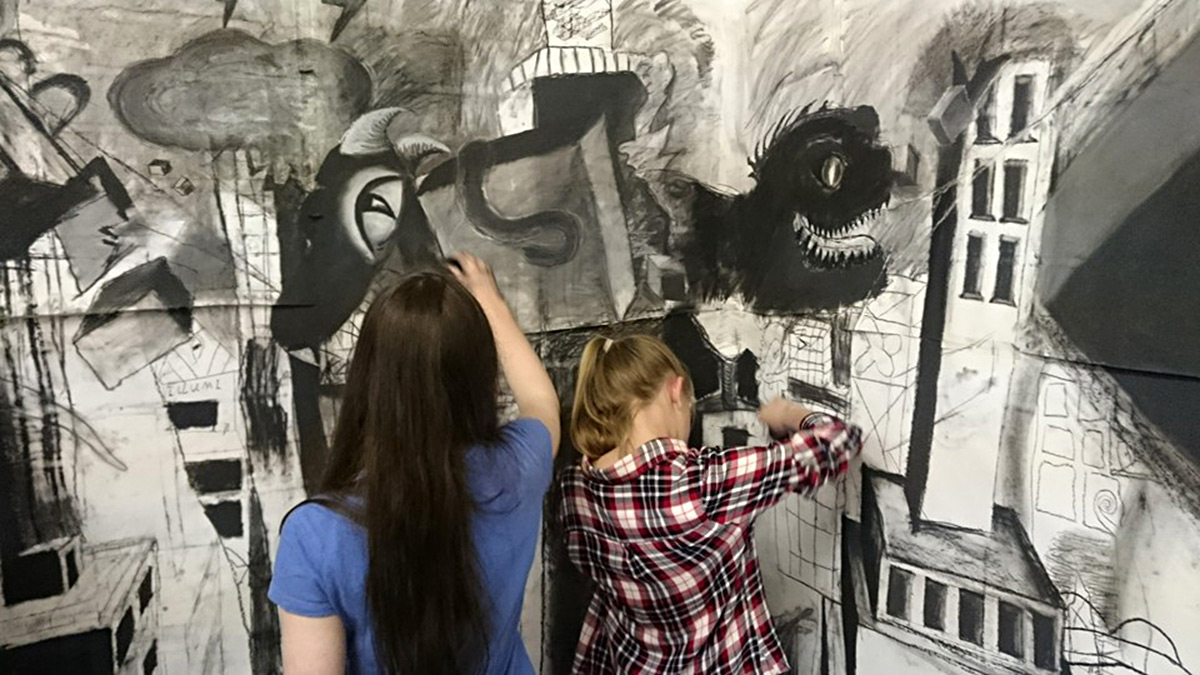More support for cultural education:
Through art and culture, we come to understand and articulate ourselves. They engage us in a dialogue about values; they define our national identity and our concept of citizenship. They hand down the tradition, the ideas and the language that make us confident innovators. Art and culture bring us joy, help us to reflect and empathise. They benefit us educationally, economically and socially.
All this is especially pertinent in schools – where it all begins. Classrooms brimming with creativity bring learning to life, enabling children to reach their full potential right across the curriculum. That’s why art and culture are a key element of the early years foundation stage curriculum, used to develop knowledge, understanding and skills across a broad range of subjects.
Many schools provide a fantastic cultural education offer, with arts and creativity running through all subjects. But it can be tempting to narrow choice to focus on improvement in core subjects like maths and English. We know, however, that young people who engage with the arts are happier, and have improved concentration and higher aspiration, which ultimately impact on all aspects of their education. Children need to have opportunities to experience the arts through the statutory arts curriculum, so that they can choose to pursue them at key stage 4 and beyond. It is vital that arts and culture are not squeezed out, with high-quality cultural experiences available to all young people, regardless of background.
Looking beyond the playground, creative skills are becoming an increasingly valuable currency for young people in securing future prospects, given that one in 20 new jobs is currently coming from the creative industries.
Last week, the Department for Culture, Media and Sport published new figures revealing that our creative industries are now worth £84.1 billion per year to the UK economy and generate nearly £9.6million per hour. As the creative industries continue to grow, we need to nurture the future generations of talent that this industry will need.
At the Arts Council, we believe that every child should have the opportunity to create, compose and perform their own artistic work, be it dance, drama, literature, visual arts or music. They should all be able to visit, experience and participate in the extraordinary artistic work of others. They should know more, understand more, and be able to critically review the cultural experiences they’ve had.
We know that art and culture transform children and young people’s lives for the better.
And while all our children deserve a rich cultural education, not all of them are getting it. While research shows that engagement with arts and culture among children and young people is crucial to developing life-long habits, we also know that in some areas, this is perceived as less of a priority. And we also know that those from the most deprived backgrounds are least likely to engage with cultural activities.
We need to address this now and close the gaps. This is at a time when, more than ever, we need to free all the talent we have at our nation’s disposal.
Last October, the Arts Council launched the Cultural Education Challenge. This is a call to action: to schools, cultural providers and to local authorities, challenging them to join together in cultural education partnerships to ensure that even more children and young people can experience art and culture, regardless of who they are or where they live.
These new networks across the arts and education sectors will shape new ways of increasing access for all children and young people. By 2018, we aim for 50 of these partnerships to be up and running throughout England.
We need to talk more about this – and we need to work together to ensure better networks of provision that will reach every child, no matter where they start in life, so that every child can enjoy a quality cultural education and the benefits that come with it.
Arts and culture are among our greatest assets as a nation; we are internationally renowned for our creativity. Let’s join together to make sure that the cultural education of our children is too.

